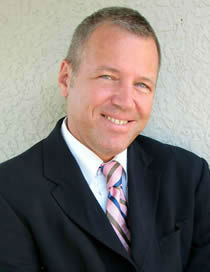
Spirituality
“Men will be lovers of self, lovers of money, proud, arrogant, abusive, disobedient to their parents, ungrateful, unholy, inhuman, implacable, slanderers, profligates, fierce, haters of good, treacherous, reckless, swollen with conceit, lovers of pleasure rather than lovers of God, holding the form of religion but denying the power of it” (2 Tim 3:2-5).

Pakaluk
''But understand this," says St. Paul, "in the last days, there will come times of stress" (RSVCE). Other translations have "grievous times," "terrifying times," and "dangerous times." (2 Tim 3:1).
What will make them so? Earthquakes, famines, wars, plagues? Portents in the heavens? No, St. Paul says, but the characters of those around you.
"Men will be lovers of self, lovers of money, proud, arrogant, abusive, disobedient to their parents, ungrateful, unholy, inhuman, implacable, slanderers, profligates, fierce, haters of good, treacherous, reckless, swollen with conceit, lovers of pleasure rather than lovers of God, holding the form of religion but denying the power of it" (vv. 2-5).
That is quite a list. If I study it slowly, I think I see people like that all around me. Lovers of self? -- the narcissism of social media. Lovers of money? -- the excess consumption by most, of the most ridiculous trivialities, while ignoring the poor (including the children they could have had but "could not afford.") Profligates? -- we're a nation of debtors. Fierce? The Greek word means savage, like a wild beast. Maybe you watch violent videos of the sort which would never have been tolerated before.
Haters of good? -- Consider the "Month of Rage" over protection of the unborn child in the womb. (Count that as ferocity also.) Treacherous? -- Disloyalty is everywhere. A recent poll showed that only a slim minority of Americans remains patriotic. (Some people would add: the persistent selling out of the American workplace to a "global economy.") Lovers of pleasure rather than God? -- Weigh the aggregate time spent viewing pornography with time spent in prayer.
This spectacle that we see now truly is terrifying. Not because anyone with that sort of character can potentially injure or betray you, although that may be so. (It would be absurd to deny a connection between the state of our common character and the extraordinary crimes we see around us.) But rather because our common character seems to be (if I may be blunt) so corrupt, so despicable. It is terrifying simply in itself, whatever the consequences -- and God is just.
Don't get me wrong. I'm not interested in virtue signaling, posturing, or thinking myself better than anyone else. I simply take myself to be stating facts about human character, in the manner of an inventory, not reaching judgments about responsibility or comparative merit.
Pride is perhaps the most important item on the list. St. Thomas says that pride has four forms: claiming an excellence that we don't in fact have; claiming as our own an excellence that was given to us by another; claiming as something we earned, an excellence given to us by another; and, finally, simply being excessively exhilarated by an excellence we have, even if we acknowledge it as a gift. But I don't think it's been often pointed out that, inherently so, an atheistic society will be disposed to pride, as no one sees fit to attribute blessings to their true source or has strong reason to downplay them.
Now I want to quickly add a caveat. I say that our "common character" seems to match the description that St. Paul gives. By "common character," I mean what presents itself to us in elite culture, on social media, and especially in our entertainment culture, our celebrities and political class. This "common character" is broadcast, through our influence, all over the world. It is a common way for the rest of the world to think of us. And yet, in reality, when I travel through the country, especially in rural areas, or deal with small business owners anywhere, I find something better. That is, what I call our "common character" may not, empirically, be the most numerous character, although undeniably, it presents itself as if it were and, indeed, as if it is the only character.
Also, I am not unaware that large areas of the world are very different. Hence, another caveat: I do not wish to argue that, because the "common character" of some parts of the United States seems to match St. Paul's description, that, therefore "we are in the end times," and a Christian might reasonably expect the world to end imminently.
I do, of course, think we are supposed to live as if the world could end soon. Our Lord teaches this explicitly. But as regards those verses from St. Paul, I favor the interpretation which Aquinas gives: by "the end days" are meant merely future days, days to come. (St. Jerome in the Vulgate wisely rendered it as "in novissimis diebus.")
But then, why will men become like that in "days to come?" Aquinas says, matter of factly, "faith and charity will be annihilated and perish utterly: for the further away a thing is from its beginning, the weaker it gets. As a result, faith and charity will fall away in those days, because men will be further from Christ." He quotes Our Lord: "But yet when the Son of Man comes, shall he find, do you think, faith on earth?" (Lk 18:8).
I find it highly noteworthy that Aquinas, and Our Lord apparently, wanted to discourage triumphalism, and a confidence in the progress of the truth of the Gospel. But my main takeaway is this: if we are meant to flee from what we find "terrifying," then it becomes all the more necessary, here and now, to draw close to Christ.
- Michael Pakaluk, an Aristotle scholar and Ordinarius of the Pontifical Academy of St. Thomas Aquinas, is a professor in the Busch School of Business at the Catholic University of America. He lives in Hyattsville, MD, with his wife Catherine, also a professor at the Busch School, and their eight children. His latest book is "Mary's Voice in the Gospel of John" available from Amazon.
Recent articles in the Spirituality section
-
No line-drawingMichael Pakaluk
-
Physician-assisted suicide is a slippery slopeCardinal Seán P. O’Malley
-
He saw the cloths and believedBishop Robert Barron
-
God's instrument for viewing the crucifixionMichael Pakaluk
-
QuinquagesimaMichael Pakaluk


















